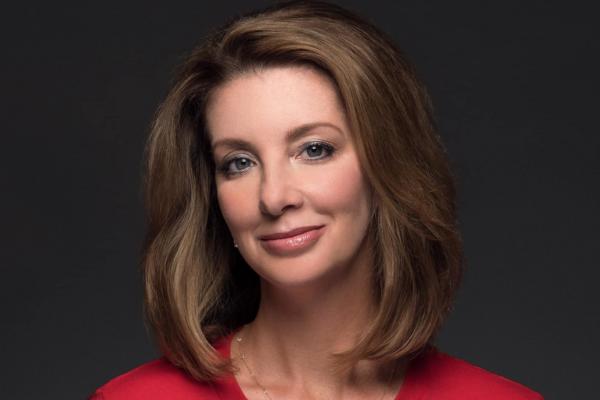Just a few years ago, Shannon Watts stepped back from her role as a communications executive to be a stay-at-home mother of five. Today, she is one of the most prominent activists in the world. Shannon is the founder of Moms Demand Action for Gun Sense in America, the leading force for gun violence prevention, with chapters in all 50 states and a powerful grassroots network that has affected change at local, state, and national levels.
Shannon’s life changed dramatically the after the Sandy Hook massacre. She started a Facebook group advocating for reducing gun violence – and from that, an entire movement was born. This past year, she became an author as well, with the publication of her new book: Fight Like a Mother: How a Grassroots Movement Took on the Gun Lobby and Why Women Will Change the World.
I spoke with Shannon about her journey into activism, some of the challenges she’s encountered along the way, and how it all squares with her understanding and practice of Buddhism. This interview has been edited for length and clarity. You can listen to our full conversation on the Spirited podcast, available on iTunes, Sticher, Spotify, and anywhere else you get your podcasts.
Simran Jeet Singh: Can you tell us a bit about what’s at your core and what drives you every day?
Shannon Watts: I am a very competitive, passionate person and I think those characteristics have always driven me really to succeed in the business world for a long time. I have found these qualities to be very useful in the world of activism, to be able to strategic plan, and to apply all the business sense that I learned in my career in Fortune 100 companies. Bringing these skills together with the passion I have for the issue of gun violence, though, is something I never imagined for myself. I certainly never imagined I'd be an activist. But I think these same things that drove me as a person and a business professional have also helped me to be successful as an activist.
Singh: What about your spiritual and religious upbringing? How does that tie into your life journey?
Watts: I was raised by an agnostic mother and a deeply Catholic father. And he really hoped that I would be a devout Catholic too. Every Sunday I was in Church. I went to Catholic school. Every Saturday I was in catechism. We were surrounded in upstate New York by other Catholic families. So many of my friends were Catholic. But honestly, it never felt helpful to me. It never really clicked.
It wasn’t until my late 30s that I found Buddhism. It was always something that fascinated me, but it also seemed very off-the-grid. As you can imagine, my father was not really that supportive of my investigating Buddhism, but it felt right to me. I was already meditating and doing yoga and, you know, dancing around the edges – and then I started studying it and going to Shambhala and going on retreats. And that’s how I became more immersed in it.
Singh: Are there any ways that you see your Buddhist outlooks or practices informing your activism for gun violence prevention in America?
Watts: I have to say that the most interesting part for me has been the practice of keeping my ego in check. It is very easy to let your ego get out of check when people are doing interviews with you, or when volunteers think that you are somehow elevated, or when people are looking for your opinion or leadership. I can feel that in myself from time to time.
For me, these past seven years have been a huge exercise in the Buddhist teaching of non-self, that it is not about me at all and I am not any different than the volunteers working in this organization. That this is just my role, which is the tip of the spear, and that for reasons I’m not quite sure why – but this has been how I have been practicing for the past seven years (since founding Moms Demand Action).
Singh: There are many discussions today about the place of anger within activism. And there is certainly a lot of anger and outrage in the wake of our gun violence epidemic. How do you think about the appropriateness of anger within your work?
Watts: Buddhist teachings have a lot to say about anger. The Dalai Lama says anger is the most divisive, corrosive, worst emotion that exists because it's so toxic to the people who are angry and the people who you are angry at. But there's also this discussion about what is righteous anger and how can you take that anger and, instead of using it to be harmful to yourself or other people, how do you use it to transform, and how do you use it to change things? That is how I see it.
I do think anger is an emotion you have to keep your eye on and make sure that you protect against. It's easy, for example, on social media for your anger to devolve into ad hominem attacks. In situations like that it can become a dangerous emotion. But if you're using it to advocate for a position, you know is right and just, then anger is helpful and even in many ways, the fuel that keeps you going.
Got something to say about what you're reading? We value your feedback!






